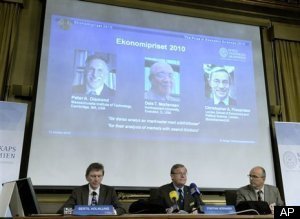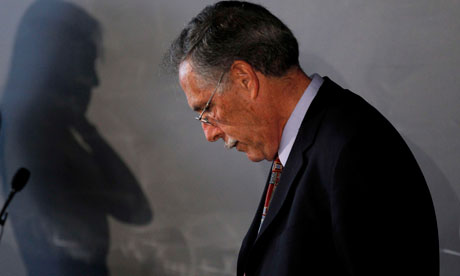Ken Merckaert
Source: BBC News
Manchester United reports pre-tax loss of £80m
Slowly but surely, the financial crisis is killing us all, even Manchester United, which is struck by a loss of 80 million pounds this year, will remember the ‘predator’. Although the English giants made a large profit last year with the transfer of Cristiano Ronaldo, the football club suffers from financial problems, caused by debts repayments, interest payments and low profits from the sale of players. Banks have imposed financial conditions like one-off finance charges, which are associated with their bonds. Manchester United, owned by the Glazer family, pretends there is no reason to sell one of their football stars or to put ‘The Red Devils on the market for sale.













